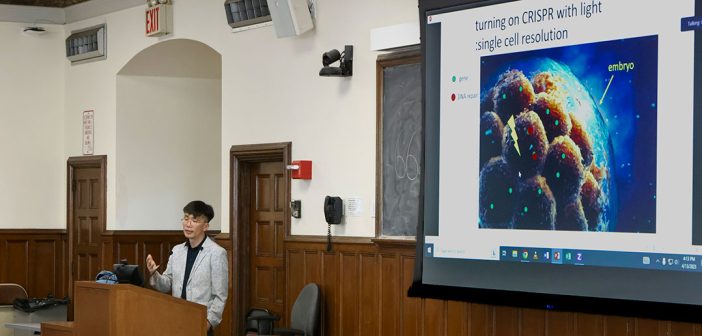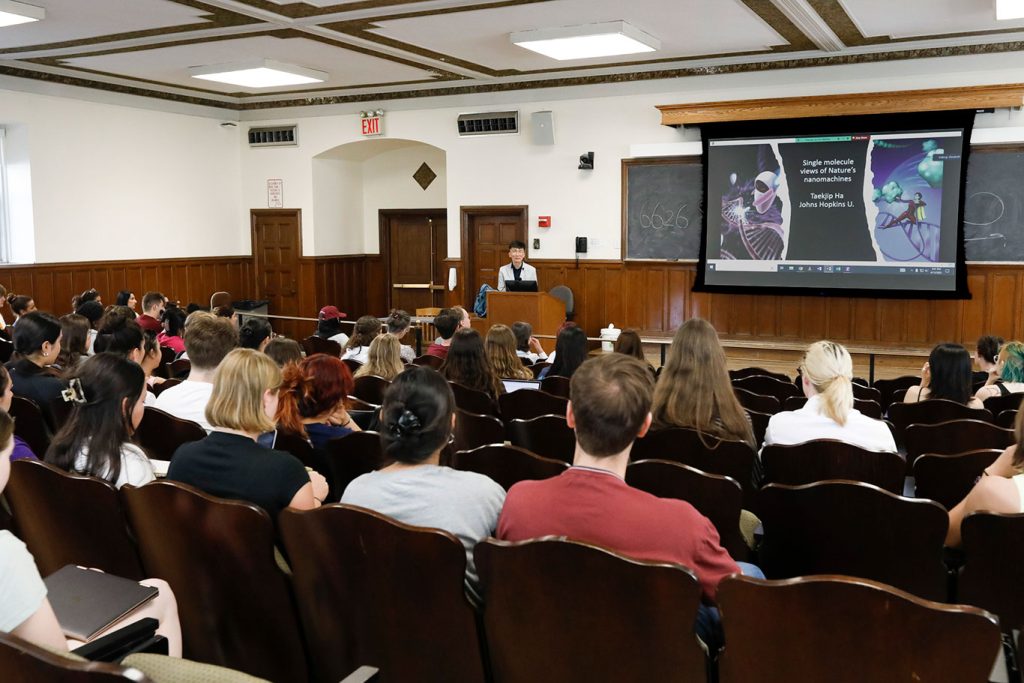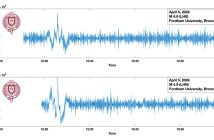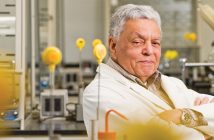In October, the department won the Jean Dreyfus Lectureship Award, a highly competitive award from the Dreyfus Foundation that was only given to seven universities in the United States this year.
Hosting Lectures on CRISPR, DNA Repair, and Proteins
The award enables the department to host a lecturer of their choosing. Fordham proposed Taekjip Ha, Ph.D., a Bloomberg Distinguished Professor of Biophysics and Biophysical Chemistry at Johns Hopkins University School of Medicine.
Ha, who has done pioneering research in the field of single-molecule fluorescence spectroscopy and is a leader in the field of CRISPR technology, delivered two lectures at the Rose Hill campus on April 12 and 13. One, titled “Light, CRISPR and DNA Repair” was geared toward the scientific community, while the other, “Single Molecule Views of Nature’s Nanomachines” was crafted for the general public. The latter focused on how biophysicists are using light-based tools to examine proteins—nature’s nanomachines—one molecule at a time.
The criterion for the award was based partly on the department’s efforts in scholarly research and education in the contemporary chemical sciences, as well as information about the number of chemistry majors at the institution and how many go on to graduate school.
The principal investigator responsible for assembling the information was Elizabeth Thrall, Ph.D., assistant professor of physical/biophysical chemistry. Ipsita A. Banerjee, Ph.D., professor and chair of the department, and Joshua Shrier, Ph.D., the Kim B. and Stephen E. Bepler Chair Professor of Chemistry, were co-investigators for the award, which also provides funding for two students to conduct research this summer.
Schrier and Thrall were also awarded, along with Yijun Zhao, Ph.D., an assistant professor of computer and information science, Fordham’s inaugural James C. McGroddy Award for Innovation in Education.
The team, which will share a $10,000 prize, was honored for path-breaking interdisciplinary work that has transformed lab courses in chemistry by incorporating data science and machine learning into the undergraduate curriculum.
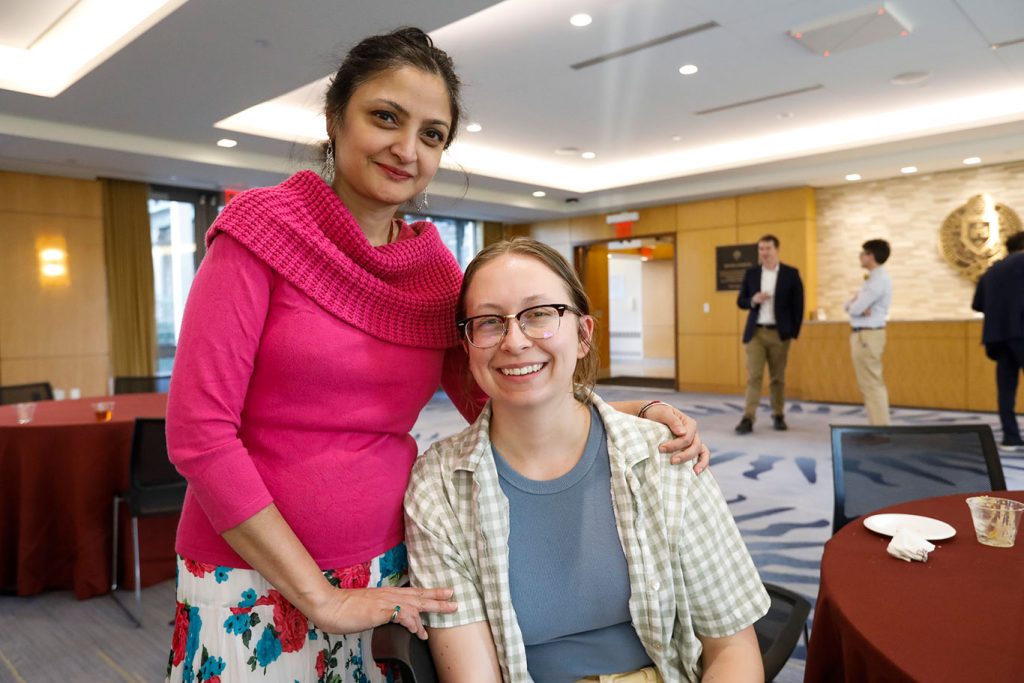
Ipsita Banerjee and Mary Biggs, a sophomore chemistry student, at the reception following Professor Ha’s talk.
Biochemistry Professor Honored with Three Awards
Banerjee, who became chair in 2018 and whose research involves harnessing bionanotechnology to tackle cancer and other illnesses, attributed the Dreyfus award to the strengths of the department, which in recent years has added faculty, won highly competitive grants such as those from the National Science Foundation, and is in the process of adding a biochemistry major.
She said the win also reflects the department’s choice of Dr. Ha. Ha, who spent time after his lecture chatting with STEM students at a reception, clearly impressed the judges, she said.
In addition to the Dreyfus award, Banerjee was also individually honored this year with three awards. She received the Middle Atlantic Region American Chemical Society’s 2023 E. Emmet Reid Award in Chemistry Teaching at Small Colleges, the Distinguished Scientist Award from the Westchester Chemical Society, and Fordham’s Distinguished Research Award in the Sciences and Mathematics.
“I’m very honored, but at the same time, it also makes me want to work harder and try to do more for our students, particularly when it comes to research,” she said.
“Research is my passion, and working with students is what I love.”
